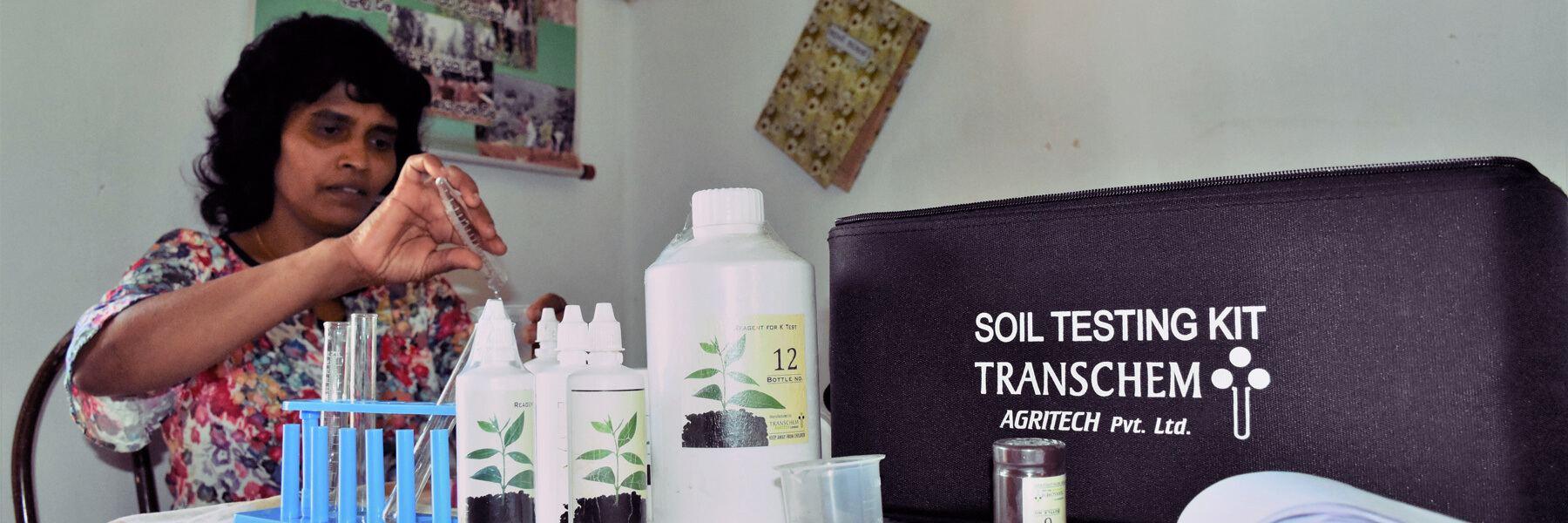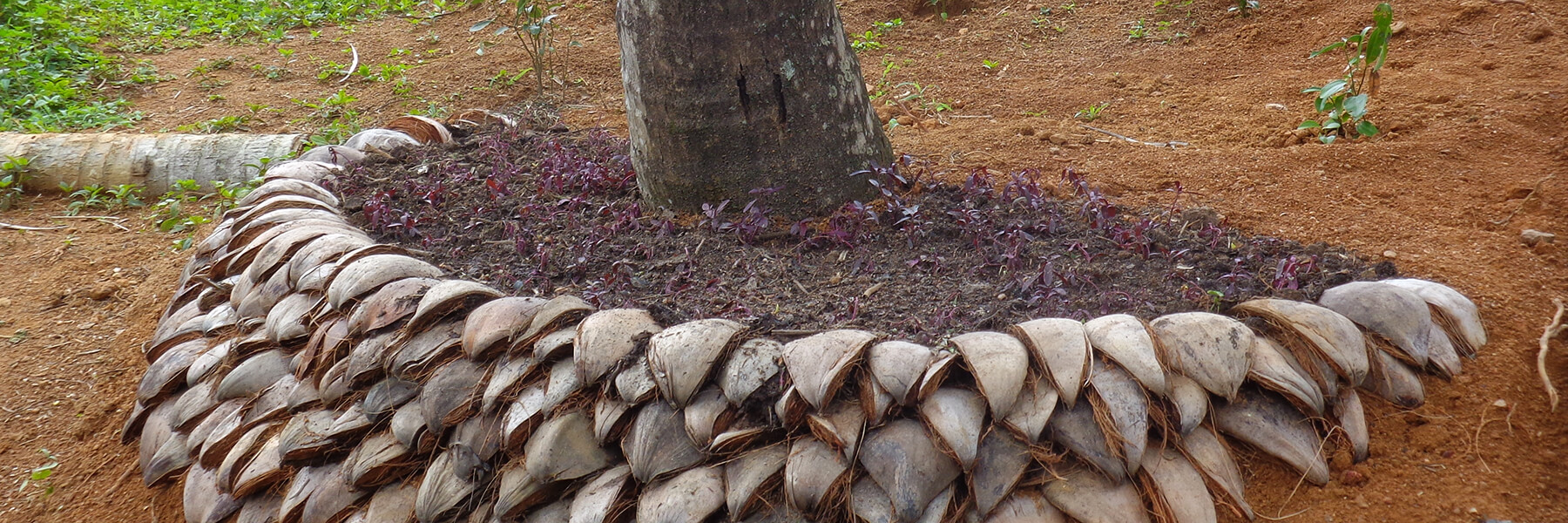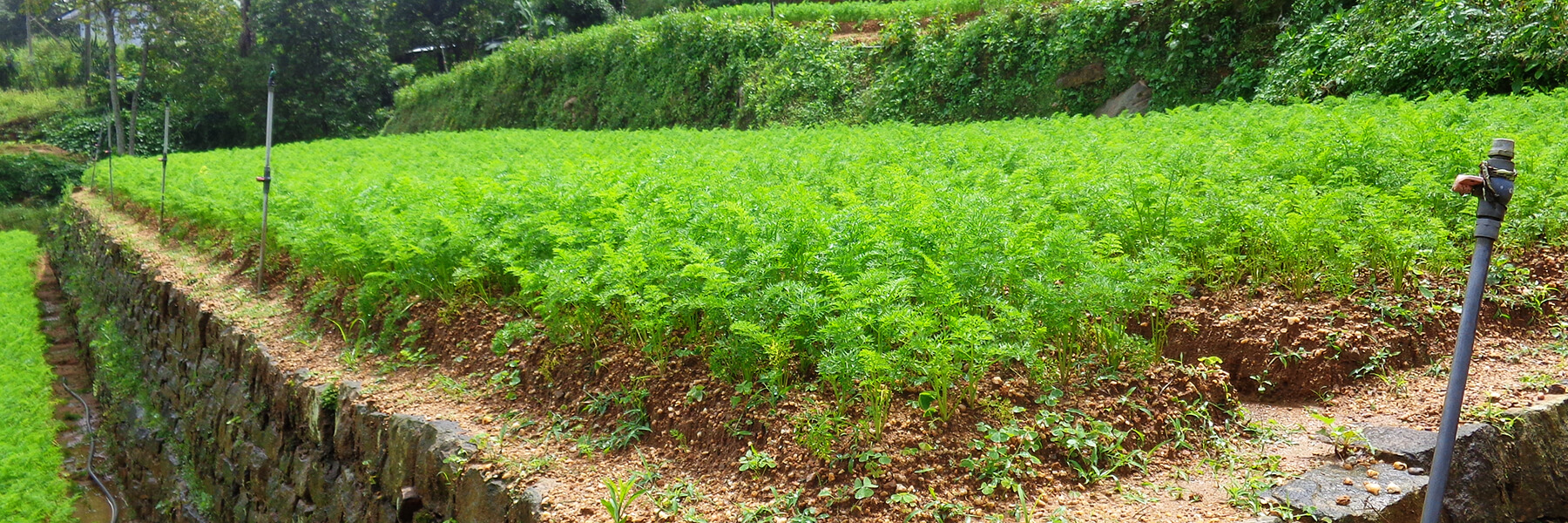A private-public partnership overcomes constraints that vegetable farmers encounter when adopting novel SLM technologies and Good Agricultural Practices. The private sector helps with marketing, value addition, certification, and financial support. The public sector fulfils farmer training needs through (for example) Farmer Field Schools using digital platforms. This approach was implemented in vegetable growing lands in hilly and rolling terrain, where the average annual rainfall is relatively high: Wet zone (>2500 mm) Intermediate zone (1750-2500 mm-short dry periods). Controlling soil erosion is crucial in these regions. Further, overuse and misuse of agrochemicals are common among the farmers.
On the other hand, farmers experience lack of market opportunities, lack of technical and financial support and water scarcity in the intermediate zone which restricts farming to 1 or 2 cropping cycles. This approach aims to support vegetable growers by providing financial and technical support to implement technologies to minimize soil erosion and increase fertilizer and water use efficiencies, while providing adequate market opportunities and product value addition.
In the field, the following technologies were implemented as a package: plastic mulch, terracing, drip irrigation systems, fertigation units and insect proof nets. Furthermore, capacity development programs were implemented along with continuous monitoring, financial support was provided to adopt the technologies. The market opportunity was expanded via value addition through “GAP-certification" (GAP = Good Agricultural Practices) and facilitating easy and secured access to market via private sector involvement.
By adopting this technological package farmers were able to reduce the fertilizer use by about 70-80 % via "fertigation" - that is fertilizer mixed in irrigation water. Further, the pest attacks and need of insecticides were significantly reduced due to insect proof nets. The weed growth was negligible due to the plastic mulch which reduced the labour cost significantly as previously, farmers used to control weeds manually. Soil erosion was minimal due to plastic mulch used over the contour terraces. The water use efficiency was improved via drip irrigation and the farming was not affected by the short drought periods. The overall cost reduction that the farmers experience by adopting this technological package was about 20%. Further, the yield increase was about 20%, which raised the profit by 30%. Proper use of pesticides with adequate safety measures and safe disposal of the pesticide containers are mandatory to be qualified for GAP-certification. Farmers that adopt this approach collect pesticide containers in a designated place in the farm.
The implementation of the approach was as follows:
1. Discussions between Food and Agriculture Organization of United Nations (FAO) and Department of Agriculture, Sri Lanka (DOA) to develop a private-public partnership (PPP).
2. Call for proposals from private sector supermarket owners and exporters.
3. The proposal of Cargills (Ceylon) PLC was accepted.
4. Areas with easy access to Cargill’s vegetable collection centers were selected for the pilot programme, namely Haguranketha and Nuwarleiya, Boralanda and Bandarawela.
5. Eighty progressive farmers who had been providing vegetables for the already established vegetable collection centers were selected for the initial program.
6. Farmer awareness programs and Farmer Field Schools were conducted on the technological package, the GAP certification process and market arrangements.
7. The technical package was installed in farmers’ fields. Farmers were supported financially to obtain raw materials and cover the capital cost (for polythene, drip irrigation systems, insect-proof nets and accessories, fertilizers and pesticides). The cost estimated to implement the package was Rs. 300,000 for quarter of an acre (Rs. 2.96 million/ha = approx. UD$ 8950/ha). Cargills and the FAO funded RDAL (Rehabilitation of degraded agricultural lands in the central highlands of Sri Lanka) shared 2/3 of the material cost. The rest of the cost was borne by the farmer. Cargills Bank provided low interest loans to farmers to cover their share of the capital cost. The areas that have easy access to Cargills vegetable collection canters were selected. Haguranketha and Nuwarleiya, Boralanda and Bandarawela collection centers were selected for the pilot program.
8. Continuous monitoring and capacity development and motivational programs were implemented via field visits and WhatsApp groups.
9. GAP-certification was provided for the vegetables.
10. A market was provided by Cargills with a guaranteed 10% premium above the standard rate.
11. Alongside the implementation processes, other developments took place. These included: supply of fertilizers and pesticides to farmers and provision of study scholarships for children of the farmers by Cargills.
The limitations of the approach are as follows: first, reluctance of the farmers to follow the rigorous record-keeping process necessary to obtain the GAP-certification; second, the absence of a proper methodology to recycle or upcycle the pesticide containers; third, the on-going lack of consumer awareness about the GAP-certified products.The main objectives of the approach were to reduce cost of the farmer by 20%, increase the yield by 20 % and increase the profit by 30%, while promoting sustainable land management. This also expected to provide farmers more access to the market by addressing the consumer demand for certified-foods.
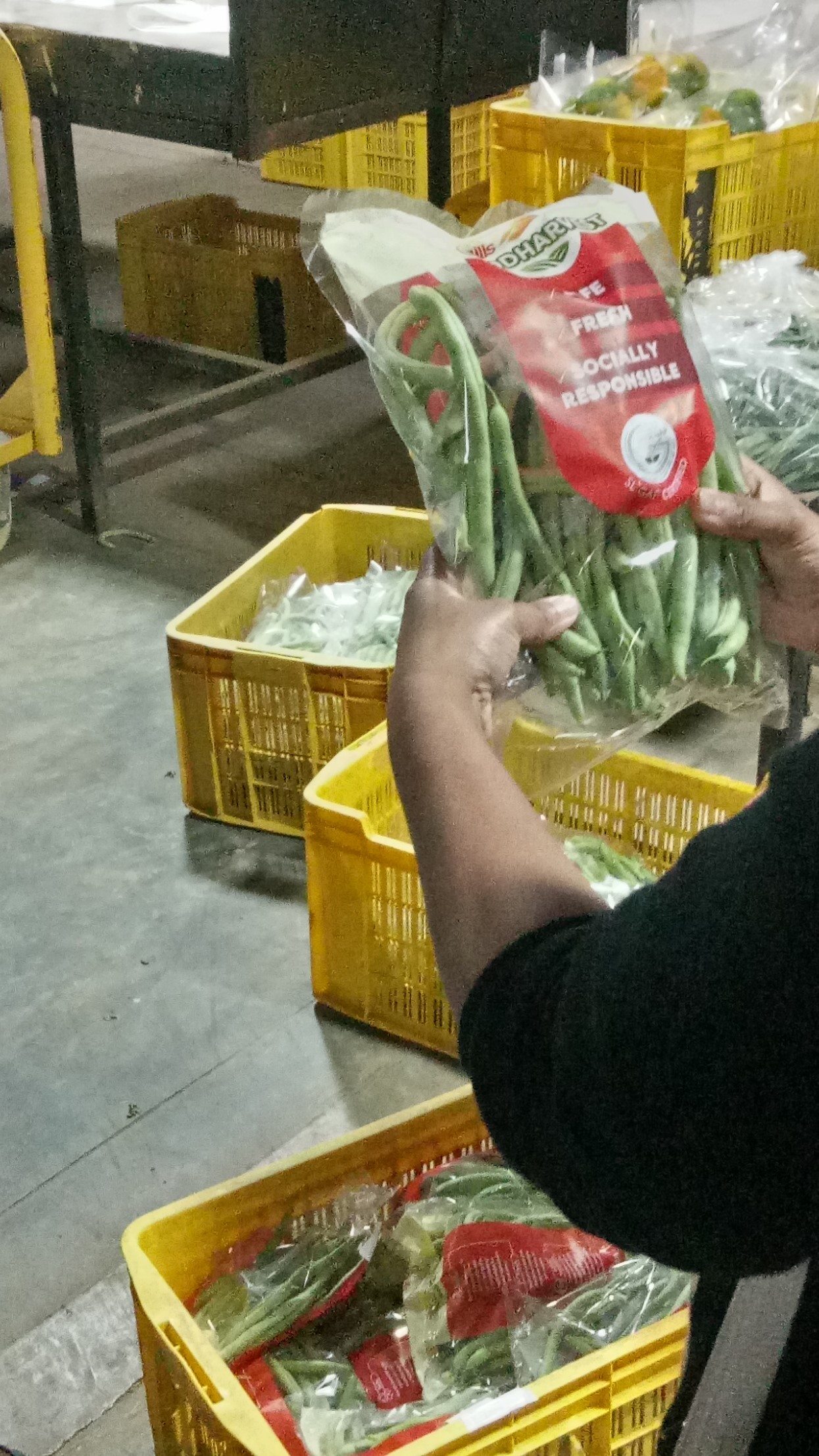
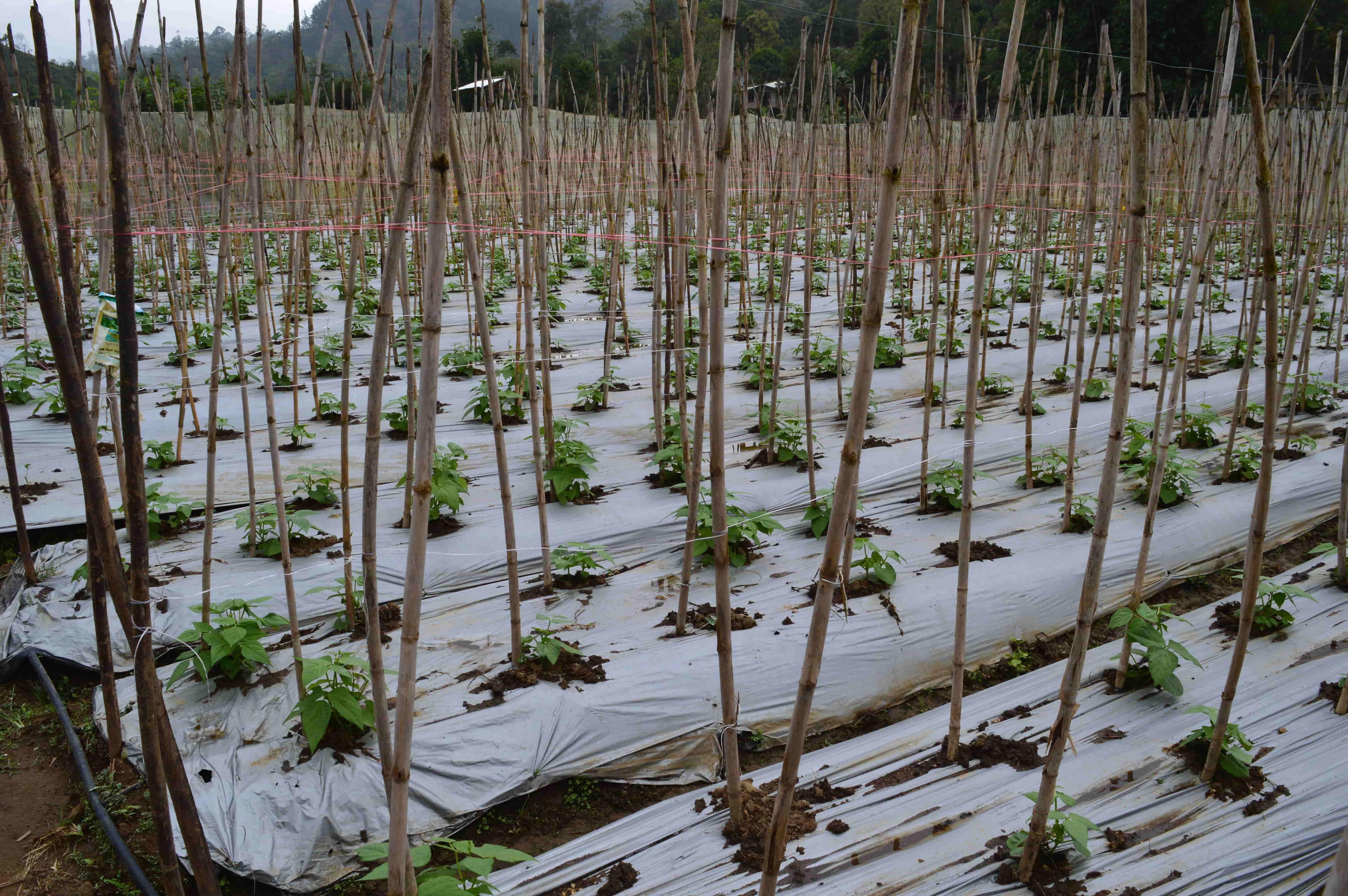
Compiler: Head Department of Soil Science, Faculty of Agriculture, University of Peradeniya
Co-compilers: Dr. Chammi Attanayake, Tharindu Kulasinghe (Department of Soil Science, Faculty of Agriculture, University of Peradeniya)
Key Resource Persons: Nimal Gunasena (Food and Agriculture Organization of United Nations)
Tharindu Jayaweera (Agrarian Service Centre, Department of Agriculture, Sri Lanka)
D.L. Manoj Karunathilaka (Cargills (Ceylon) PLC, Sri Lanka)
Chandika Gunathilaka (Cargills Agrodevelopment Company, Cargills (Ceylon) PLC, Sri Lanka)
Land Users: Herath Mudiyanselage Leelarathna (Ketakela, Ambegoda, Bandarawela)
K.M.S.J Jayasiri Bandara (Ketakela, Ambegoda, Bandarawela)

